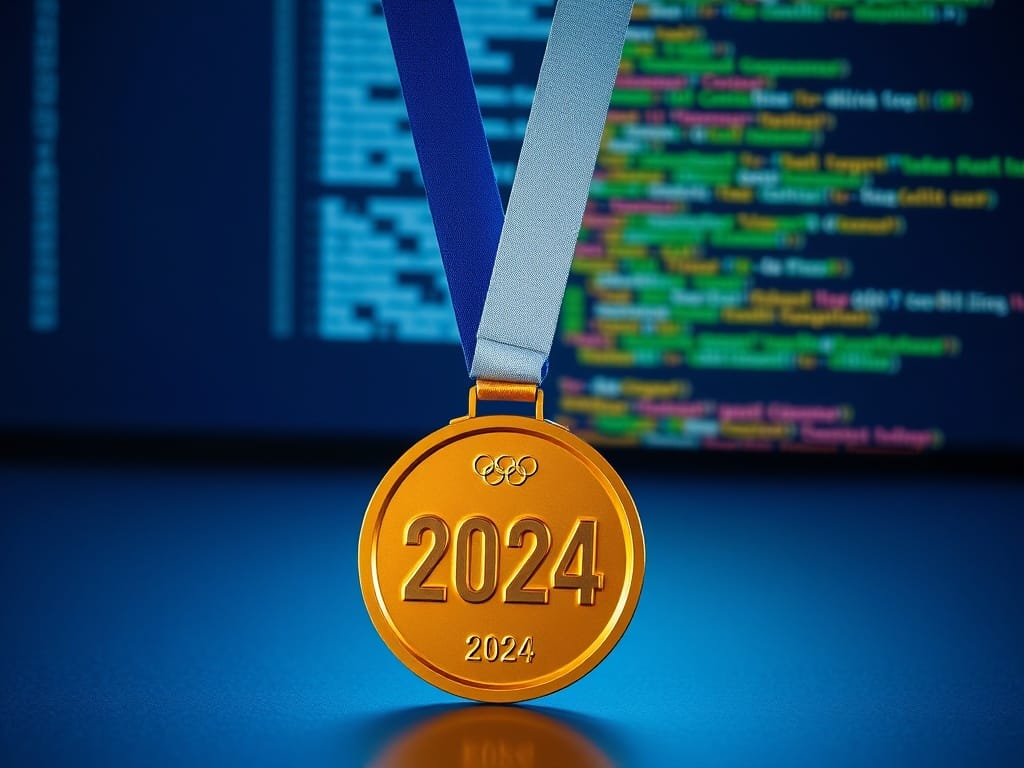The world's brightest programming minds are putting artificial intelligence to the ultimate test. Olympic medalists from prestigious competitions like the International Olympiad in Informatics (IOI) and ACM International Collegiate Programming Contest (ICPC) are emerging as the definitive judges of large language models' coding capabilities—and their verdicts are reshaping how we understand AI's potential in competitive programming.
The New Gold Standard for AI Assessment
Unlike traditional software testing, competitive programming demands more than functional code. It requires algorithmic brilliance, optimal time complexity, and the ability to solve complex problems under extreme pressure. Who better to evaluate AI's prowess than those who've mastered these skills at the highest level?

Recent evaluations conducted by IOI gold medalists reveal a fascinating landscape. While models like GPT-4 and Claude can solve basic to intermediate programming problems with impressive accuracy, they struggle with the nuanced thinking that separates good programmers from great ones.
"The difference becomes apparent in problems requiring creative insights or non-standard approaches," explains former IOI champion and current MIT researcher Sarah Chen. "LLMs excel at pattern recognition but often miss the elegant solutions that would earn full points in competition."
Beyond Correctness: The Olympiad Perspective
Algorithmic Efficiency
Olympiad veterans focus on metrics that matter in competition: time complexity, space optimization, and code elegance. Their assessments reveal that current LLMs frequently produce working solutions that would timeout in actual contests.
A recent study by former ICPC world champions found that while GPT-4 solved 73% of Division 2 problems correctly, only 31% met the strict time limits required for competition scoring. This gap highlights the difference between "working code" and "winning code."
Problem Decomposition Skills
Elite competitive programmers praise LLMs for their ability to break down complex problems into manageable components—a skill crucial for tackling multi-part challenges. However, they note significant weaknesses in dynamic problem-solving when initial approaches fail.
"In real competition, you might realize your first approach won't work after 30 minutes of implementation," notes three-time IOI medalist Alex Rodriguez. "The ability to pivot quickly is where humans still have a decisive advantage."
Real-World Evaluation Results
The Codeforces Experiment
Several Olympic medalists conducted blind evaluations using historical Codeforces problems. The results were telling:
- Easy Problems (800-1200 rating): LLMs achieved 89% accuracy
- Medium Problems (1300-1700 rating): Accuracy dropped to 52%
- Hard Problems (1800+ rating): Only 23% success rate
These numbers align with what top competitive programmers expected: AI excels at routine algorithmic tasks but struggles with problems requiring genuine insight.
Interactive Problem Challenges
Former IOI contestants specifically tested LLMs on interactive problems—challenges where the solution must adapt based on real-time feedback. This category proved particularly challenging for AI systems, with success rates below 15% even on medium-difficulty problems.
The Verdict: Promise and Limitations
Where LLMs Excel
Olympic medalists consistently praise AI for:
- Code template generation: Quickly producing boilerplate code for common algorithms
- Debugging assistance: Identifying logical errors in existing solutions
- Educational value: Explaining algorithmic concepts clearly
Critical Gaps Identified
However, champions identify crucial weaknesses:
- Lack of mathematical intuition: Missing elegant proofs or mathematical insights
- Poor optimization instincts: Failing to recognize when solutions need complexity improvements
- Limited creative problem-solving: Struggling with unconventional approaches
Implications for the Future
The assessments by Olympic programming medalists carry weight beyond academic curiosity. Their evaluations are influencing how tech companies approach AI-assisted development and educational tools.
"These insights are incredibly valuable for understanding where AI can augment human programmers versus where human expertise remains irreplaceable," says former ICPC coach Dr. Michael Thompson.
As LLMs continue evolving, this unique perspective from the world's top competitive programmers provides a roadmap for meaningful improvements. Their standards—forged in the crucible of international competition—offer the most rigorous benchmark for measuring AI's journey toward true programming mastery.
The collaboration between Olympic-level human intelligence and artificial intelligence isn't just about evaluation—it's about understanding the future of problem-solving itself.
Target Audience: Software engineers, competitive programmers, AI researchers, computer science students, tech industry professionals interested in AI capabilities and limitations.
